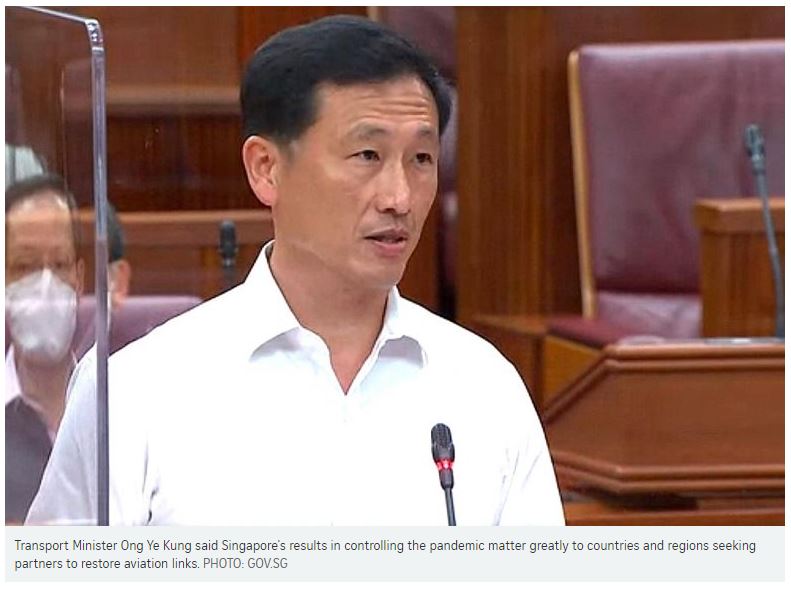Singapore explores air travel bubbles in push to reopen borders safely
In another push to reopen its borders, resume general travel on a limited basis and revive its decimated air hub, Singapore is planning to start talks on air travel bubbles with countries that have managed the Covid-19 pandemic well.
Tourists and other travellers who come in under this proposed arrangement will be tested for the coronavirus, but would not have to be quarantined or follow a fixed itinerary, said Transport Minister Ong Ye Kung yesterday.
He noted in his ministerial statement that testing is the key to unlocking air travel, and to that end, a dedicated Covid-19 testing laboratory will be set up at Changi Airport in the next few months.
Said Mr Ong: “The longer our borders remain closed, the greater the risk of losing our status as an air hub, and our attractiveness as a place to invest… The status quo is therefore not sustainable for us.”
Singapore’s status as an air hub has played a key role in attracting companies to invest heavily here, he noted. This is because companies know their various stakeholders can travel in and out of Singapore easily.
But connectivity has been severely hampered. For example, Changi now has direct flights to just 49 cities worldwide, down from 160 before the pandemic.
“We need to take proactive steps to revive the Changi air hub, as a top national priority,” said Mr Ong.
“Our aviation hub status is essential, even existential, to the health of the Singapore economy, to our jobs and our future.”
The Changi air hub and its adjacent industries contributed to more than 5 per cent of Singapore’s gross domestic product and employed more than 190,000 people.
But the situation has become dire since Covid-19 struck. Changi Airport, which was the seventh busiest airport in the world in terms of international passenger traffic before the pandemic, has fallen to 58th place.
It is serving just 1.5 per cent of its usual passenger volume and 6 per cent of the usual number of passenger flights at the moment.
Several aviation companies – most notably Singapore Airlines (SIA) – have retrenched staff amid expectations of a long-drawn-out recovery for the air travel sector.
Mr Ong pledged that while the Government will continue to support SIA, Changi Airport Group and the aviation sector as much as it can, the best way to help them would be to restore passenger traffic in a controlled and safe manner.
Testing incoming travellers will be key to this move.
More Covid-19 tests will be allocated to air travellers, with Singapore on track to raise its testing capacity from 27,000 people a day currently to 40,000. It is also looking at faster and less intrusive tests.
Testing travellers must be complemented by the ability to trace contacts of infected cases and having a local situation under control, he said.
Singapore’s results in controlling the pandemic – reflected in its low fatality rate and low community transmission – matter greatly to countries and regions seeking partners to restore aviation links, said Mr Ong. “The key is to make sure we stay safe and manage the risks while we open up aviation.”
Pointing to how Singapore is establishing more reciprocal green lanes, facilitating transfers at Changi and unilaterally opening its borders to countries where the pandemic is under control, he said: “We cannot control what other countries want to do with their borders. But we can control ours, to welcome back visitors, bring back jobs, and revive our air hub safely.”
Mr Ong added: “The message we want to send to the world is this – Singapore has started to reopen its borders. In the near future, if you have the virus under control and infection rates are as low as Singapore’s, you are welcome to visit us, but travellers will be subject to a Covid-19 test, as a precaution.”
Parliament will sit again next Wednesday.
Source: https://www.straitstimes.com/singapore/politics/spore-explores-air-travel-bubbles-in-push-to-reopen-borders-safely


 English
English




